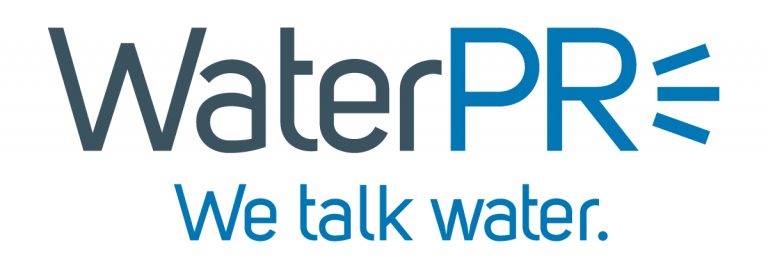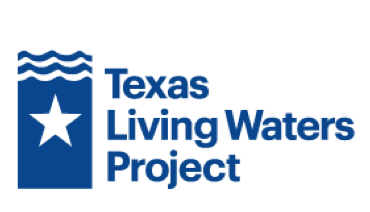One Water in the Texas Hill Country
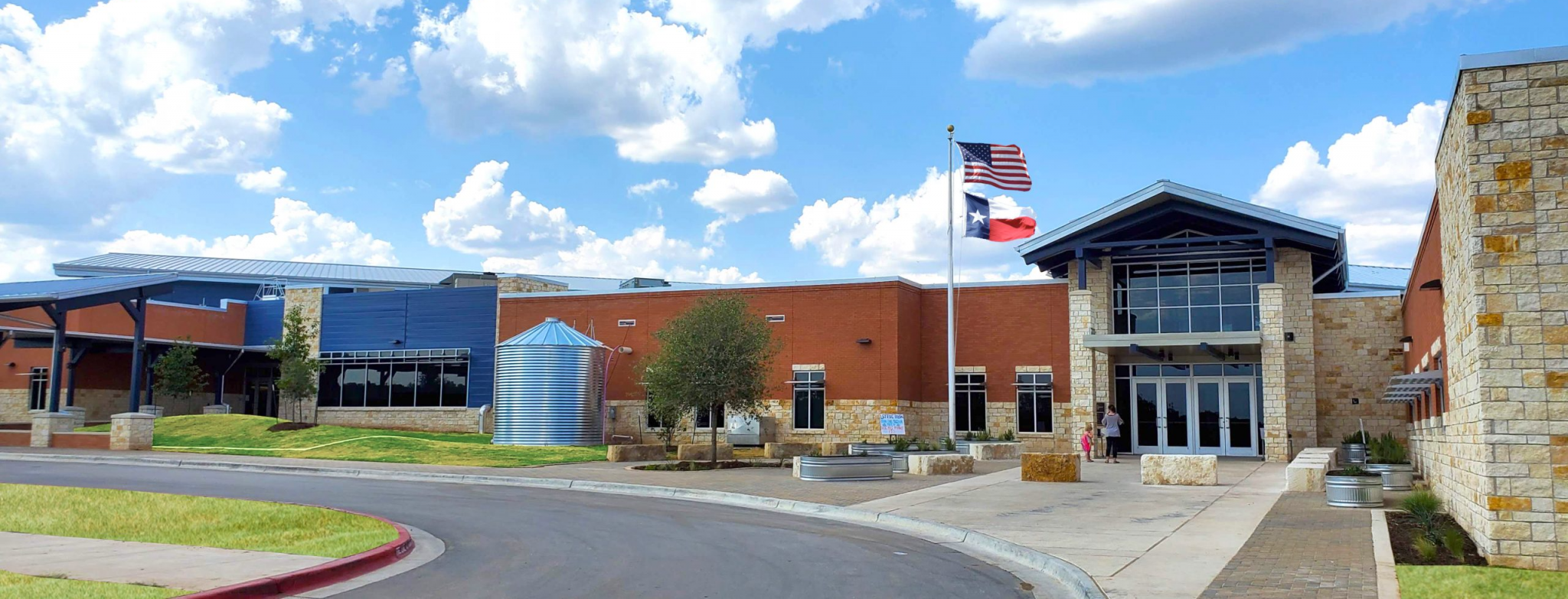
One Water in the Texas Hill Country
Water is the lifeblood of our region. Thirteen Texas rivers have their headwaters in the Hill Country, and for centuries the residents and stewards of these lands have recognized the critical importance of protecting water quantity and quality for future generations.
We all see the Hill Country growing at an incredible pace. Business-as-usual development practices place increasing pressure on our water supplies. The dramatic swings in weather and water availability only compound that pressure. As water resources are squeezed, our ability to access affordable water for domestic, irrigation, business and recreational purposes could be severely impacted—ultimately harming our economy, property values and natural ecosystems.
We can no longer afford to turn a blind eye toward threats to the long-term resilience of our water. There is a growing practice of integrated water management known as One Water that offers a way for us to grow as a region while protecting and respecting water resources at the same time. One Water strategies include 1) the use and reuse of water to expand water supplies; 2) the collection, treatment and management of water close to its source; and 3) the pursuit of all opportunities to minimize our overall water footprint.
While One Water is a relatively new term, it refers to an efficient and conservative approach to water management older than Texas. It’s about making every drop count, being smart about how we design and build in a water-limited region, and ensuring that water is here for people and the environment—today and for generations to come. – Katherine Romans | Hill Country Alliance
A Guidebook for Connecting Communities with Projects and Professionals
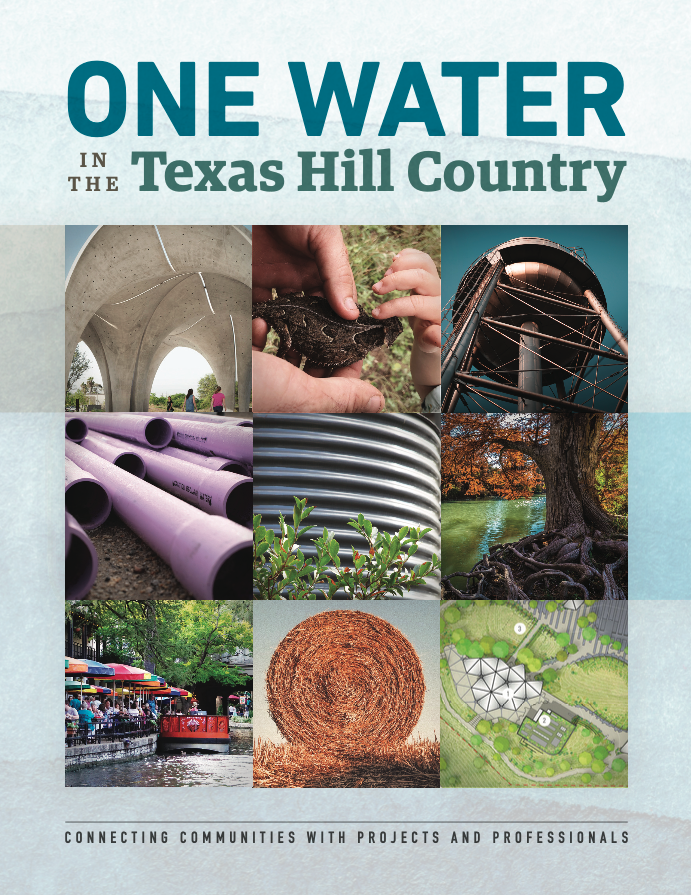
Explore examples and connect with professionals
The Hill Country Alliance is working with National Wildlife Federation and partners to promote and educate on One Water throughout the Hill County. This guidebook, a joint project of our organizations, is intended to connect Hill Country communities facing growth and increased demands for water with water professionals experienced with One Water strategies, planning, implementation, design and construction. We interviewed engineers, architects, planners and landscape designers to gain insight into the realities of One Water projects, and within these pages feature the 14 selected professionals along with an example project each completed in Texas.
Finding and connecting with consultants who can be trusted with a community’s most precious resource—its water—is a serious undertaking, and we hope this guidebook gives you a good place to start. Our organizations are committed to help you along the way as well.
Dive Deeper into the Guidebook
 One Water Explained
One Water Explained
As defined in the guidebook, One Water is a term that refers to an integrated approach to planning and implementation in order to manage finite water resources for long-term resilience and reliability. One Water considers all water resources as a potential water supply—rainwater, drinking water, stormwater and wastewater—and seeks to minimize our overall demand for water resources. By using a One Water planning approach, water resources can be used together, efficiently and effectively, for the benefit of the community and the environment.
Traditional development, guided by our regulatory framework, separates water into siloed systems. This reflects an outdated infrastructure model where miles and miles of expensive pipelines run through our rocky Hill Country ground to deliver fresh water for drinking and other uses, and then doing the same in reverse to remove the “waste” water. This method is expensive from all perspectives: development, infrastructure timing, raw water demands, and environmental costs.
At the heart of One Water is the critical importance of stakeholder input.
In order to manage water resources and water needs collectively, municipal departments can create new ways of working together to manage water as interconnected and interdependent operations. Stakeholders—including developers, residents, community leaders, urban planners, water managers and engineers—can plan together with the goal of utilizing water as thoughtfully and efficiently as possible to benefit their community.
Multiple Benefits of One Water
One Water can help us achieve the highly prized triple bottom line—benefits for our communities, economy and environment. Whereas traditional approaches to water management might only consider the immediate capital and maintenance costs associated with a project, a One Water approach considers harder-to-quantify benefits, such as the creation of a new park feature, reduction in future water demand and customers’ costs, or quality of life improvements.
 One Water Projects and Professionals
One Water Projects and Professionals
We want to stress the importance in seeking and hiring professionals with innovative ideas, proven experience, and the ability to spend time identifying and implementing your community’s values into every aspect of your project. Engineers, landscape architects, community groups, concerned citizens, elected leaders and staff—all have roles to play in tackling our region’s water resource challenges.
The list of professionals in these pages is by no means complete or exhaustive, but it provides a solid starting place to explore One Water in action in the Hill Country by acknowledging these engineers, architects, planners and landscape designers with real experience in out of box thinking.
 Contacts and Resources
Contacts and Resources
The firms and professionals listed in the guidebook represent a variety of experts “pushing the envelope” in their work to approach development from an integrated planning, or One Water, approach in the Hill Country. Contact information is current at the time of this publication but may change with time. Inclusion in this guidebook does not constitute an endorsement from the Hill Country Alliance or the National Wildlife Federation.
The following list of experience areas represents the type of expertise needed for a solid One Water approach in planning, design and development. All professional contacts listed in this section have experience in many of these areas. When interviewing consultants for a One Water project, we highly recommend inquiry on these experience areas:
- Aquifer storage and recovery
- Building systems design, includes dual plumbing, condensate recapture and water efficient fixtures
- Climate appropriate and low water use native landscaping
- Development and use of grey water
- Floodplain restoration
- Impervious cover alternatives, such as pervious pavement and green roofs Indirect and direct potable reuse
- Nature-based solutions for flood mitigation
- Permitting green infrastructure
- Rainwater harvesting for potable and non-potable use
- Securing funding for green infrastructure projects
- Stakeholder engagement
- Water-supply planning
Partners who made this book possible:
Additional Water Conservation Resources
Recent One Water News
Hill Country conference brings communities together for sustainable water solutions
A recent conference in Boerne brought local leaders and officials together to learn about sustainable water practices and conservation efforts in the Hill Country. The conference was organized in partnership between the City of Boerne, the Cibolo Center for...
One Water: How a Hill Country school is trying a new way to save water
The soccer field outside Blue Hole Primary School in Wimberley is green — almost shockingly green, considering that drought, water restrictions and a hot summer have left most of the grass around it baked and brown. But the school isn’t watering the field with...
Dry Springs in Central Texas Warn of Water Shortage Ahead
Almost every other day, Charlie Flatten gets a call about another local water well gone dry. Last week, he tried to help one woman find a water truck to fill her home cistern. But all the hauling companies had suspended service amid a deepening shortage in Central...
‘Nature-based solutions’ like trees and rain gardens can be cost-effective climate adaptations, advocates say
In early February, winter weather pummeled Austin, Texas, where “extreme weather” usually refers to sweltering temperatures, not ice storms. More than 100,000 city residents lost power because of the historic weather event, a recent example of why cities need to...

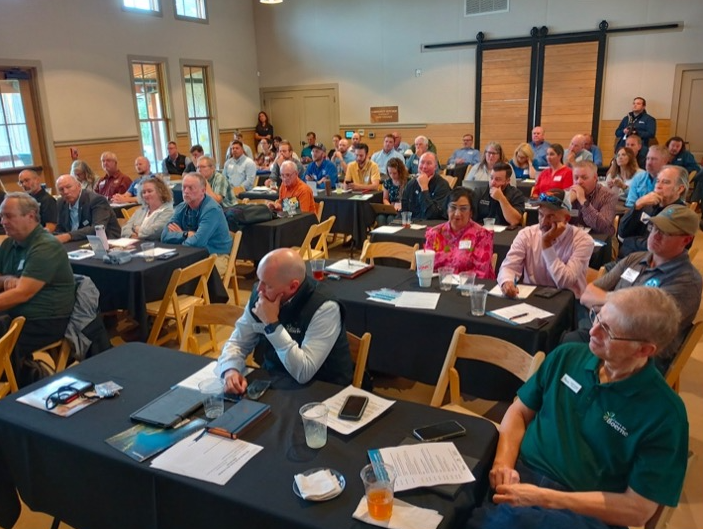
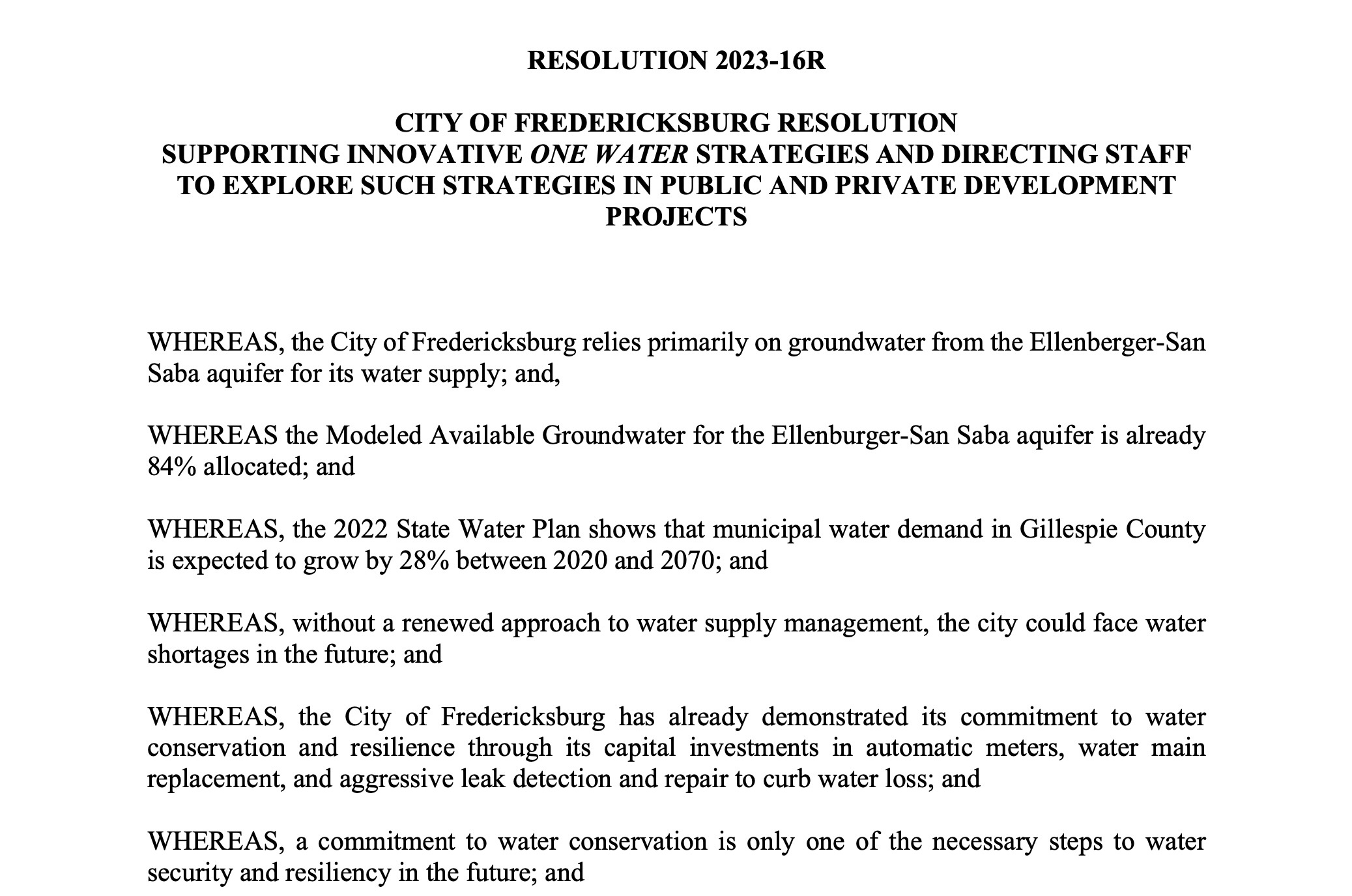
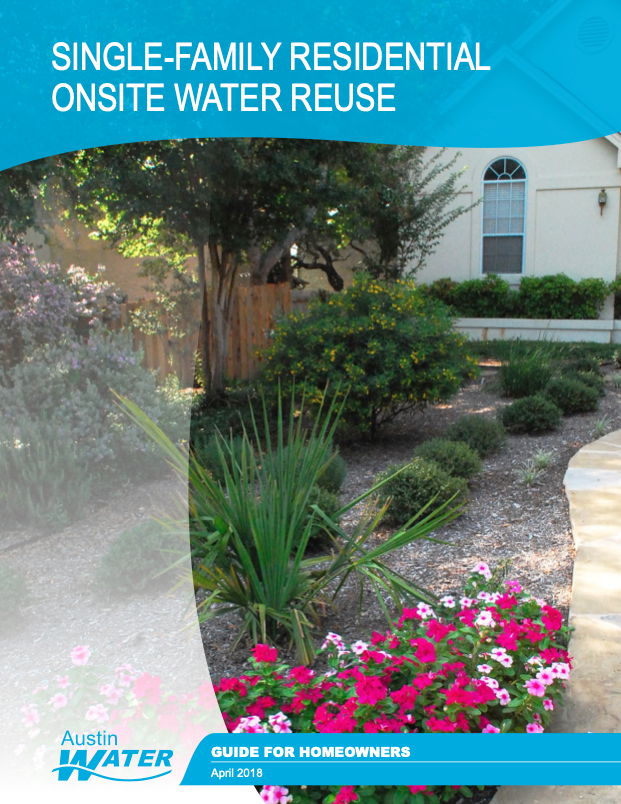
 One Water Explained
One Water Explained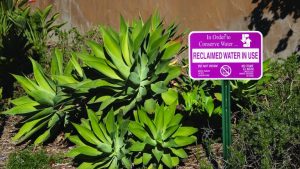 One Water Projects and Professionals
One Water Projects and Professionals Contacts and Resources
Contacts and Resources


